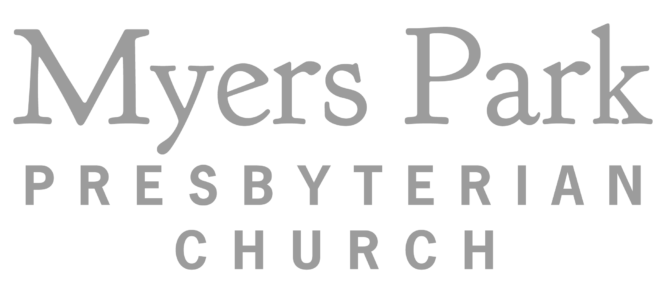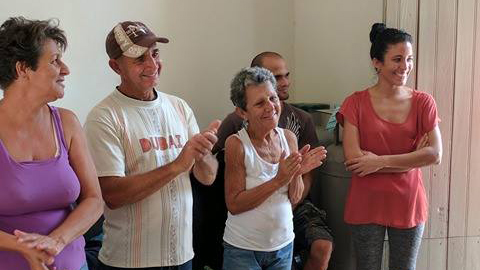Cuban cultural night was lit (pardon the slang, we are a group of mostly high schoolers).
Our Cuban friends treated us to an evening filled with skits, food, and dancing. We learned about the peanut salespeople who seem to be on every square; the weird white fruit that’s similar to a pineapple but somehow totally foreign; and the traditional and modern dances. Yes, they love the song “Desposito,” as well as a super upbeat song that I only know as “Shakey Shakey.” Dancing and laughter and hugs and smiles are pretty common on this trip.
The next morning we piled back on the bus (remember the bus?) and settled in for the four-hour drive to the coast, visiting Varajero Presbyterian Church and using that as our home base to hit the beach for a few hours before heading on to our accommodations in Matanzas.
Morning comes early in Matanzas.
We’re having a leadership retreat with the Cuban youth from Remedios at the ecumenical seminary here. We’ve grown close to these folks over that last few days. What we lack in common language we make up for in common enthusiasm. This combined group of Cuban and American youth approaches everything with an open heart and ready smile, even dragging themselves out of bed for a sunrise prayer service and a class on Liberation Theology. That class was taught by the Pastor of the Presbyterian Church in Matanzas, who also happens to be the Moderator of the denomination here. It helped us contextualize faith in a society of oppression and marginalization. Liberation Theology has a hermeneutical, circular progression of See, Judge, Act.
See: Being able to take a step back and see the reality of a situation, whether a governmental edict or of starving neighbors.
Judge: What does the Bible have to say about this situation? Does God want us to participate in that?
Act: Take a transformative step. For the church in Remedios, it’s the reason they began meal and laundry service for the elderly folks in the community.
Liberation Theology asks us to frame issues like this, which seems to make it socially responsive. We typically try to divorce our spiritual and political ideals, but this way of thinking reframes political ideas in a powerful way. It identifies aspects of society that are unjust or actively detrimental to the well-being of our fellow people. Most powerfully, it asks: “Ok, what’re you gonna do about it?”
We’re struggling with this. After talking to people over the last few days, it’s increasingly clear that the U.S. economic embargo of Cuba creates significant hardship. What’re we gonna do about it?
To be in a class like that is one thing. Okay, easy. The Americans in the room are young, healthy, economically stable, and mobile. The Cubans in the room have a much more complicated situation and few easy answers. Liberation Theology provides a framework for change.

